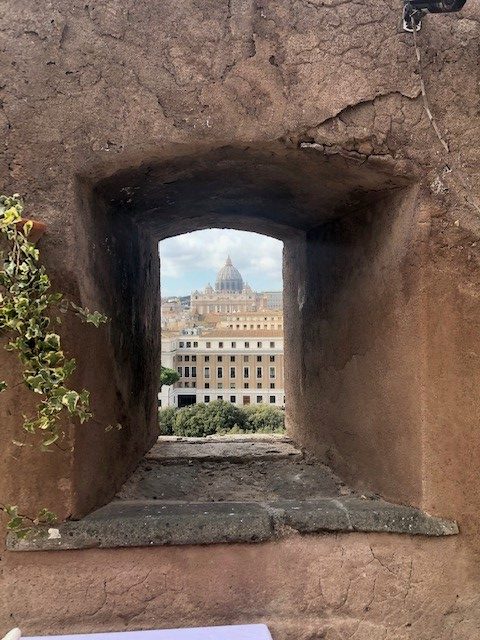
Read: Psalm 91
You will not fear the terror of the night, or the arrow that flies by day, or the pestilence that stalks in darkness, or the destruction that wastes at noonday (Psalm 91:5-6, NRSV).
This past week we all experienced a jaw-dropping example of propaganda. That this pernicious example originated with the president of the United States makes it more jaw-dropping still. Although he later claimed to be speaking sarcastically, his breathless—and irresponsible—remarks about the possible benefits of injecting disinfectant to kill the coronavirus sent public health officials and bleach manufacturers scrambling to clean up his mess. (For details, see NPR April 24, 2020)
Propaganda is defined as “information—especially of a biased or misleading nature—that is used to promote a point of view.” While we are used to encountering this in the political sphere, it haunts the halls of theology as well. It can do just as much damage there—even when it’s wielded by well-meaning believers.
Make no mistake: bad theology can kill you. What’s worse, it can kill other people.
Here is a case in point: Psalm 91. I have lost count of the times I have heard people reference this psalm as a source of comfort in the midst of the pandemic. Don’t misunderstand; I draw comfort from this psalm, too. But comfort must be derived very carefully. It will not do to rub this psalm like a rabbit’s foot, thinking that it by doing so we are somehow magically protected from the “deadly pestilence.”
What, precisely, does this psalm promise? Refuge and protection, certainly. How else are we to interpret these words?
Because you have made the LORD your refuge, the Most High your dwelling place,
No evil shall befall you, no scourge come near your tent (vv. 9-10).
Those who love me, I will deliver; I will protect those who know my name.
When they call to me, I will answer them; I will be with them in trouble,
I will rescue them and honor them.
With long life I will satisfy them, and show them my salvation (vv. 14-16).
So, yes—these words pack some powerful comfort in the midst of a pandemic. At the very least, they promise that God will honor the covenant relationship that exists with those “who live in the shelter of the Most High, who abide in the shadow of Almighty” (v. 1). From a Christian perspective, that sense of covenant identity is reinforced by the knowledge that “neither death, nor life…nor anything else in all creation, will be able to separate us from the love of God in Christ Jesus our Lord” (Romans 8:38-39).
Does that mean that anyone who “claims” such verses is immune from catching COVID-19? Of course not. To insist on this is to hold God hostage to the limits of our own understanding. Jesus had some stern words for Satan when the latter tried to tempt him with verses from this same Psalm (see Matthew 4:5-7 and Luke 4:9-13). “Do not put the Lord your God to the test,” Jesus cautioned, and Satan went scurrying away.
We also might want to consider what such claims do to our neighbors. First, there is the risk that our “rabbit’s foot religion” may actually expose others to the virus. Secure in our own invulnerability, we may rush to church or to the store, leaving our masks and our brains behind. But we should also consider what our over-confident claims imply for those who have succumbed to the virus. Was their faith insufficient? I would hate to argue that line of logic with the families of all the believing priests, pastors, and health-workers who have died in the line of duty these past weeks.
As most of you know, I have been riding out the pandemic in Rome, Italy. I first encountered the “Via di Propaganda” street sign when I was looking for a short-cut to the Spanish Steps. Why was I surprised when I got lost? I should have known that “Propaganda Street” never works as a shortcut. If we want to get somewhere good, we have to do the hard, humble work of considering facts and weighing consequences. There are no shortcuts. The longest way around is still the surest way home.
Ponder: Have you ever heard someone “claim” Psalm 91 in a way that made you uncomfortable? If so, what was that discomfort about?
Pray:
I am content, O Father to leave my life in Thy hands,
believing that the very hairs upon my head are numbered by Thee.
I am content to give ever my will to Thy control,
believing that I can find in Thee a righteousness that I could never have won for myself.
I am content to leave all my dear ones to Thy care,
believing that Thy love for them is greater than my own…
to Thee, O God, be glory forever. Amen.
From “A Diary of Private Prayer” by John Baillie (1886-1960),
Scottish Theologian and Professor
Listen:
- Here is a gentle setting of Psalm 91 by John Michael Talbot: J M Talbot’s Psalm 91
- Here is a setting from the album, Lighten Our Darkness, sung by the Cambridge Singers and conducted by John Rutter: Cambridge Singers Psalm 91

Introduction to the Roman Roads Series
As many of you know, I am spending my sabbatical in Rome, Italy. Thanks to the coronavirus, it is turning out to be something less than a “Roman Holiday.” While a pandemic was not part of my original itinerary, it does lend a unique perspective to my writing these days. I offer these reflections along with my prayers for the health and safety of our world. May God bless and keep you all!
![]()
